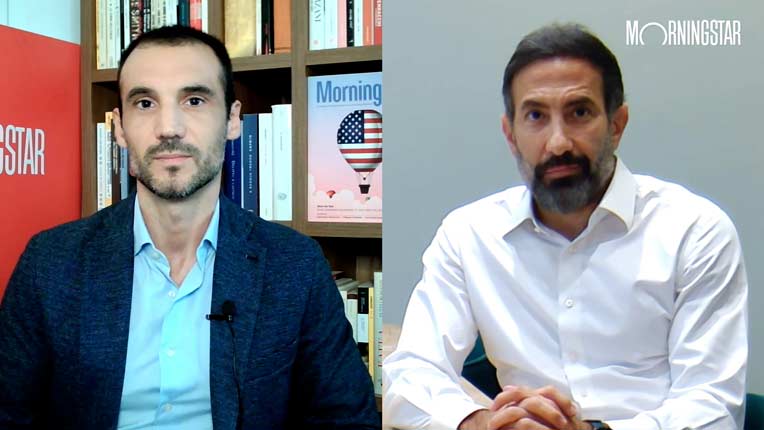Trevor Osborne has been investing in tax-free savings plans for more than 20 years.
“We started investing in 1995 when we bought our first home,” he explained. The house was bought with an interest-only mortgage, so he started saving into an investment plan to pay off the capital at the end of the term.
 In the last 20 years he has remained invested through some rocky periods, but he says he has been pleased with the overall returns. Osborne has since remortgaged his home, but he’s continued to put money into the stock market, via an ISA. In recent years he’s also taken out Junior ISAs for his children, as well as a SIPP for each of them.
In the last 20 years he has remained invested through some rocky periods, but he says he has been pleased with the overall returns. Osborne has since remortgaged his home, but he’s continued to put money into the stock market, via an ISA. In recent years he’s also taken out Junior ISAs for his children, as well as a SIPP for each of them.
Osborne, who is an IT project manager with Mercedes Benz says: “I invest in a mix of funds. We invest through the Fidelity Personal Investing and have tended to stick with Fidelity funds.”
He says he is keen to keep investment charges to a minimum, so has much of his money in Fidelity’s Moneybuilder range. These include index funds that follow the UK, US or European markets. Fidelity also offers low-cost active funds through this range - including its Moneybuilder Balanced and Moneybuilder Global range.
The Moneybuilder Balanced fund, which invests in a portfolio of high quality equities and bonds, has a four star rating from Morningstar. The portfolio is 65% investing on equities, which are managed by Michael Clark, with Ian Spreadbury managing the 35% bond split.
They work independently but meet monthly to discuss views and overall positioning. Morningstar gives these experienced managers a Bronze Rating.
The Moneybuilder Global fund has a three star rating. Its manager James Bateman, who took over in February 2014, has a Neutral Rating. Morningstar fund analysts say: “The loss of long-standing manager Richard Skelt weakens this offering, although new manager James Bateman has made a promising start.”
Passive Funds for Developed Market Exposure
Osborne says that in more developed markets he tends to invest in the index funds offered through the Moneybuilder range, but does have some exposure to more active funds when he is investing in less developed areas.
Osborne says that one of the most important things for him, as an investor, is how easily he can buy and sell holdings and transfer money from his cash fund into his investments.
He says: “There have been times when I’ve become quite nervous and have wanted to sell holdings quickly. With Personal Investing, I’ve been able to call up and shift substantial amounts of money from investments to cash and vice versa.”
Given the market volatility over the last year Osborne says he has concentrated his own ISA holdings in the UK and Europe.
“I’m fully invested at the moment though, and don’t have any holdings in cash. After all they do say be greedy when the markets are looking nervous.” However he says he doesn’t want to be too greedy adding: “Given the current market volatility I’m not investing in higher risk areas, like emerging markets and China.”
Taking a Growth Approach for Junior ISAs
However, he says when it comes to his investments for his children Osborne has tried to take a different approach. “I’ve invested in a mix of European, Japan and China funds on their behalf. With the longer term time frame - particularly on the SIPPs - I’m hoping this higher risk approach will pay off.”
Osborne says while he has dipped in and out of markets with his own money he adopting more of a ‘buy and hold’ strategy when it comes to his children’s JISAs and SIPPs.
“With the SIPPs in particular I’m looking at a far longer investment horizon. It’s amazing really - even small amounts of money have the potential to grow significantly over 50 plus years. I’m hoping the current market volatility will barely register as a blip on this timescale.”
Osborne adds: “I initially opened the JISA for my daughter in 2011. It was a good time to buy and the returns have been good on these funds. But although I invested the same amount for my son, born in 2013, this has not proved so successful. There wasn’t the strong rise in share prices to start with, and markets have been volatile more recently. I’ll have to just wait and see what difference this makes to the overall returns.”
What funds are in your ISA or SIPP? What has been your most successful investment? If you'd like to feature in Investment Views please contact the Editorial team on UKEditorial@morningstar.com





























